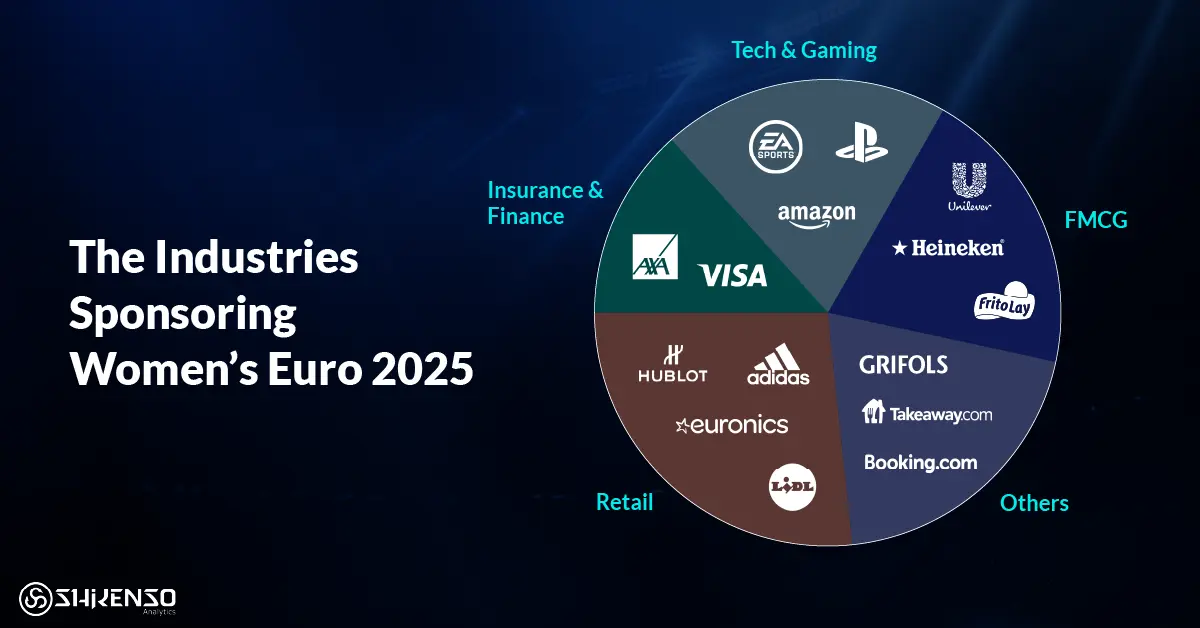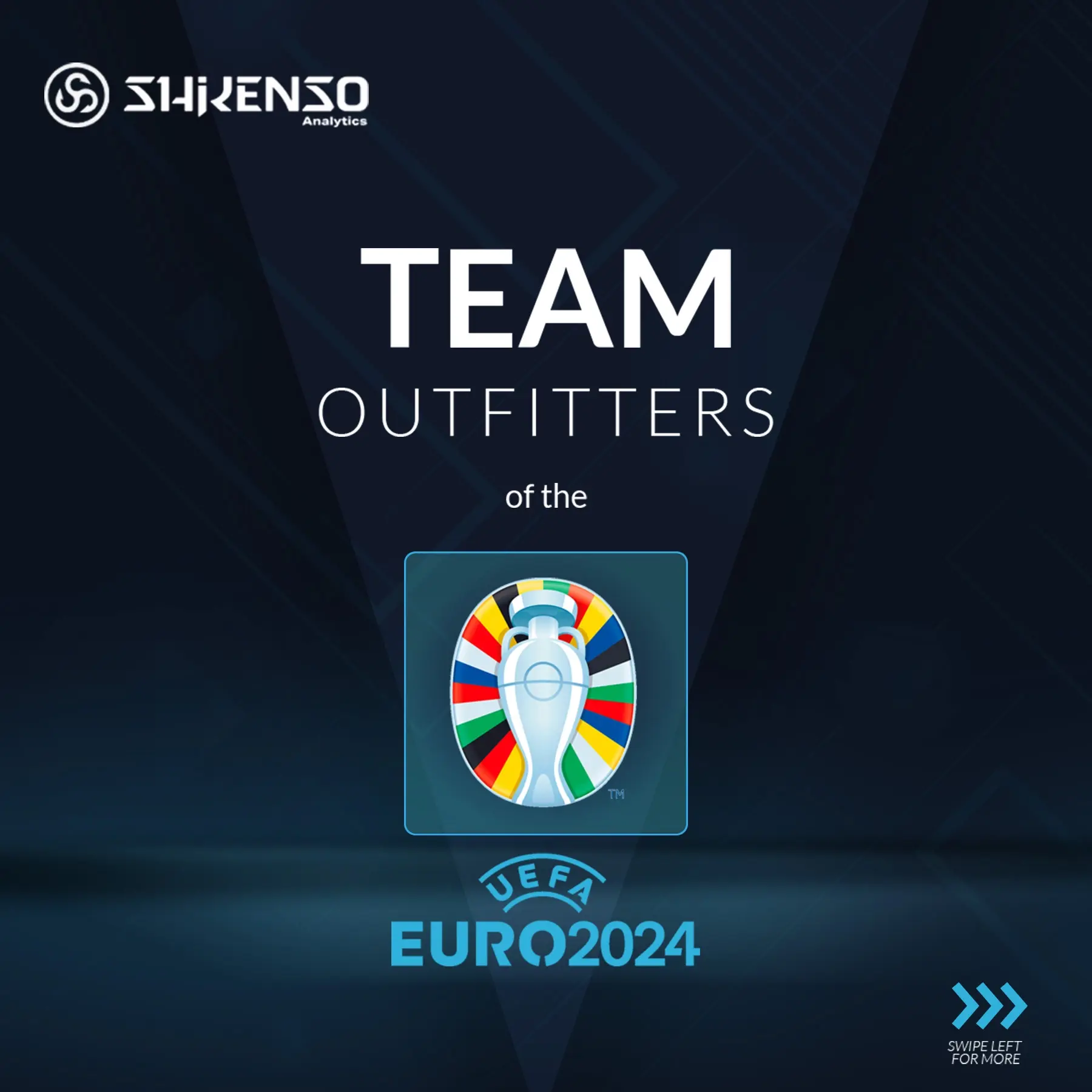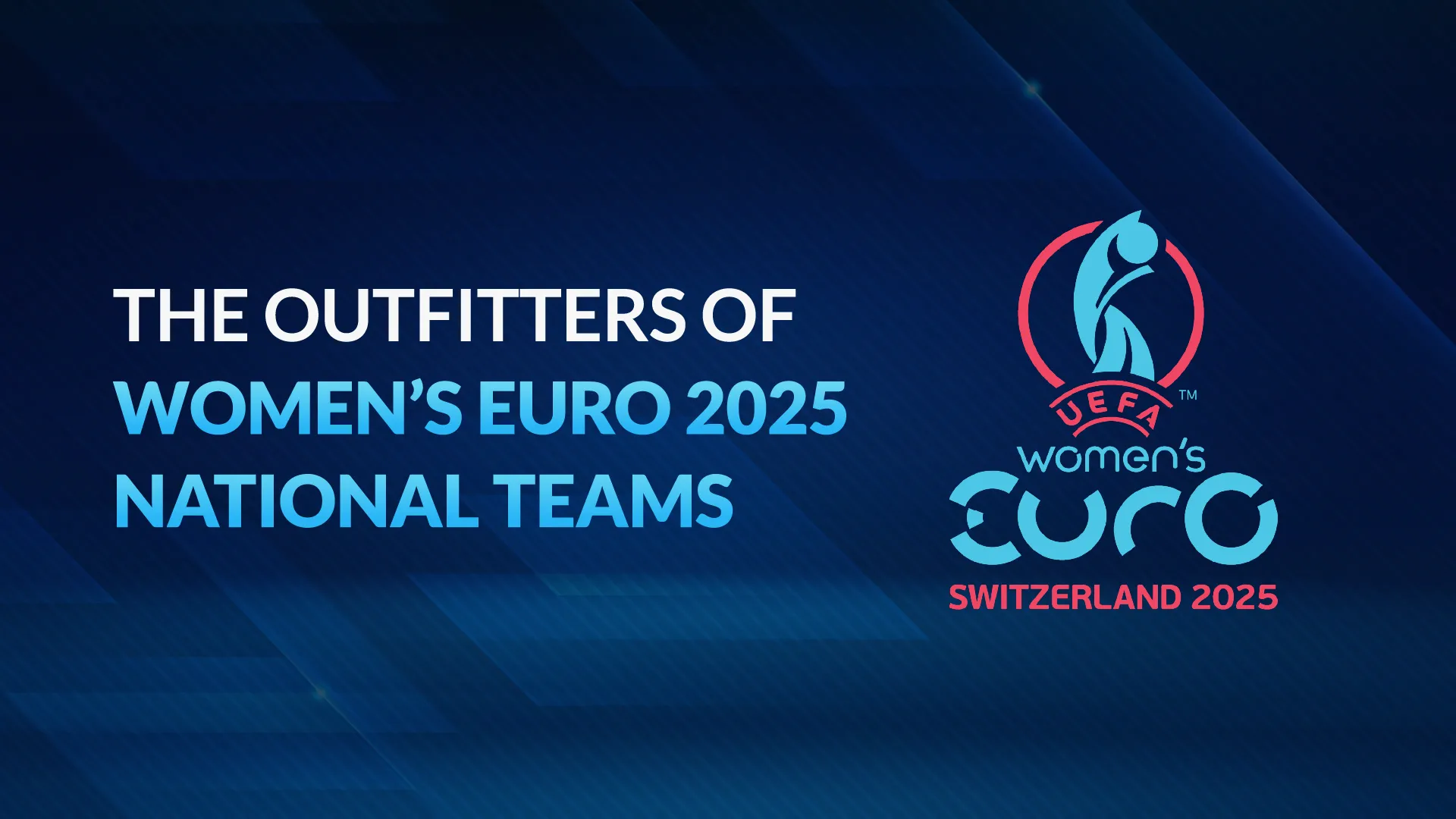Women's football spent decades chasing sponsors that traditional sports took for granted. Not anymore.
UEFA Women's Euro 2025 attracted investment from sectors that typically fund men's tournaments exclusively. Telecommunications, streaming platforms, global consumer brands, and payment processors all committed budgets. That sponsor diversity signals market maturity, not charitable goodwill.
In this post, we put the spotlight on the UEFA Women's Euro 2025 sponsors and what their presence means for the B2B landscape.
UEFA Women's Euro 2025
The UEFA Women's Euro 2025 is set to be the 14th edition of the premier European women's football championship, organized by UEFA. Scheduled from July 2 to July 27, 2025, the tournament will be hosted across eight cities in Switzerland, marking the first time the country has hosted this event. Sixteen national teams will compete, including the host nation, Switzerland, and 15 others that have qualified through the UEFA Women's Euro 2025 qualifying competition.
Note: This article was published before our rebrand. You may notice our former logo or design elements.
.webp)
Bonus: Check out the top women's sports business conferences taking place this year.
Sponsors Of UEFA Women's Euro 2025
A total of 17 brands are backing the UEFA Women's Euro 2025, representing a diverse mix of industries ranging from sportswear, tech, and finance to FMCG, food delivery, and consumer electronics. These sponsors include global household names and long-time supporters of football, each leveraging the tournament as a platform to align with the values of inclusivity, performance, and progress in women's sports. From athletic giants like Adidas and EA Sports to lifestyle leaders like Unilever and Coca-Cola, this powerful lineup showcases the growing commercial appeal of the women's game across multiple sectors.
Let's take a closer look at each sponsor and their involvement in the world of football.
Adidas
A cornerstone in football sponsorship, Adidas has supplied kits for numerous national teams and clubs. Notably, it has been associated with the German national team since 1954. However, this long-standing partnership is set to conclude in 2027, with Nike taking over thereafter.
Amazon
Amazon has ventured into sports by acquiring streaming rights for various events. In 2017, it secured non-exclusive rights to stream portions of the NFL's Thursday Night Football games. Additionally, Amazon has sponsored events like the 20th Annual Prep Kickoff Classic.
AXA
AXA has been involved in football sponsorships, including being the shirt sponsor for clubs like Atalanta and Braga. Since 2018, it has partnered with Liverpool FC, becoming the club's Official Insurance Partner and later the Training Kit Partner.
Booking.com
Booking.com has been a prominent sponsor for UEFA events, renewing its sponsorship for both the men's and women's European Championships. It also served as the Official Online Travel Sponsor for the FIFA Women's World Cup Australia and New Zealand 2023.
Coca-Cola
Coca-Cola boasts a rich history in football sponsorship, supporting every Women's FIFA World Cup since 1991. It has also been a long-time sponsor of the FIFA World Cup and various football clubs worldwide.
EA Sports
EA Sports has been deeply involved in football through its video game franchises. It has also partnered with UEFA to sponsor the Women in Football Leadership Program.
Euronics
Euronics has been an official sponsor of UEFA Women's Football, including the UEFA Women's Champions League and UEFA Women's EURO tournaments.
Frito-Lay
Frito-Lay, under PepsiCo, has been involved in football sponsorships, including being a Regional Supporter during the FIFA World Cup Qatar 2022 and a Tournament Supporter at the FIFA Women's World Cup 2023.
.webp)
Grifols
Grifols has demonstrated its commitment to women's sports by sponsoring UEFA Women's Football competitions, including the UEFA Women's Champions League.
Heineken
Heineken has been a sponsor of the UEFA Champions League since 1994, recently extending its partnership through the 2024-27 competition cycle.
Hublot
Hublot has been involved in football sponsorships, including partnerships with clubs like Manchester United, Bayern Munich, and Juventus. It also serves as the Premier League's Official Timekeeper.
Just Eat Takeaway
Just Eat Takeaway has renewed its sponsorship with UEFA, covering competitions like the UEFA Champions League, UEFA Europa League, and UEFA Europa Conference League through to 2027.
Lidl
Lidl has expanded its relationship with UEFA, becoming an official global sponsor of the UEFA Europa League and UEFA Conference League for the 2024/25 to 2026/27 seasons.
PepsiCo
PepsiCo has been a proud partner of the UEFA Champions League since 2015 and recently extended its strategic partnership through June 2027.
PlayStation
PlayStation has been a valued partner of the UEFA Champions League for over 23 years, with the partnership recently extended.
Visa
Visa has been a long-standing supporter of football, sponsoring various UEFA competitions and being a global partner for events like the FIFA Women's World Cup.
Unilever
Unilever has increasingly invested in sports sponsorship as part of its global brand strategy, especially around promoting diversity and inclusion. In 2023, it became an official sponsor of the FIFA Women's World Cup, marking a significant commitment to women's football.

Pie chart showing industries sponsoring UEFA Women’s Euro 2025, featuring tech, gaming, finance, retail, and FMCG brands like Amazon, Visa, Adidas, Heineken, and Unilever.
What Do These Sponsorships Mean?
Now that we've explored the sponsors backing the UEFA Women's Euro 2025, let's dive into what this level of brand support means for the sport and the broader business landscape.
Sponsorships like these signal a major shift in how women's football is perceived - not just as a growing sport, but as a commercially viable and culturally impactful platform. Here's what they mean in a broader context:
1. Validation of Market Potential
When major global brands invest in women's football, it validates the sport's marketability. It shows that women's football is no longer a side act but a main event worth serious investment.
2. Increased visibility and media coverage
Big-name sponsors bring more marketing muscle, helping amplify the tournament across multiple channels. This amplifies media reach, drives more engagement, and brings the sport into new markets.
3. Better Resources for Players and Teams
Sponsorship revenue often trickles down into better training facilities, coaching staff, player development, and overall infrastructure, helping elevate the standard of the game.
4. More Opportunities for Women in Sports
Beyond players, these partnerships support roles in management, media, marketing, and operations. Brands often launch campaigns focused on inclusion, which opens doors for women across the sports ecosystem.
5. A Cultural Shift in Brand Strategy
By aligning with women's football, brands send a powerful message: they stand for equity, empowerment, and future-forward thinking. It's no longer just about ROI - it's about relevance and responsibility.
Women's Football is Big Business
The sponsors behind UEFA Women's Euro 2025 aren't just backing a tournament - they're championing a cultural shift in sports. Their support reflects the growing recognition that women's football is both a powerful platform and a smart business move. As the game rises, so does the opportunity to reshape the future of sport through equity, visibility, and impact.
Get new insights straight to your inbox
Don’t miss out on the insights that the press and media rave about!




.webp)



